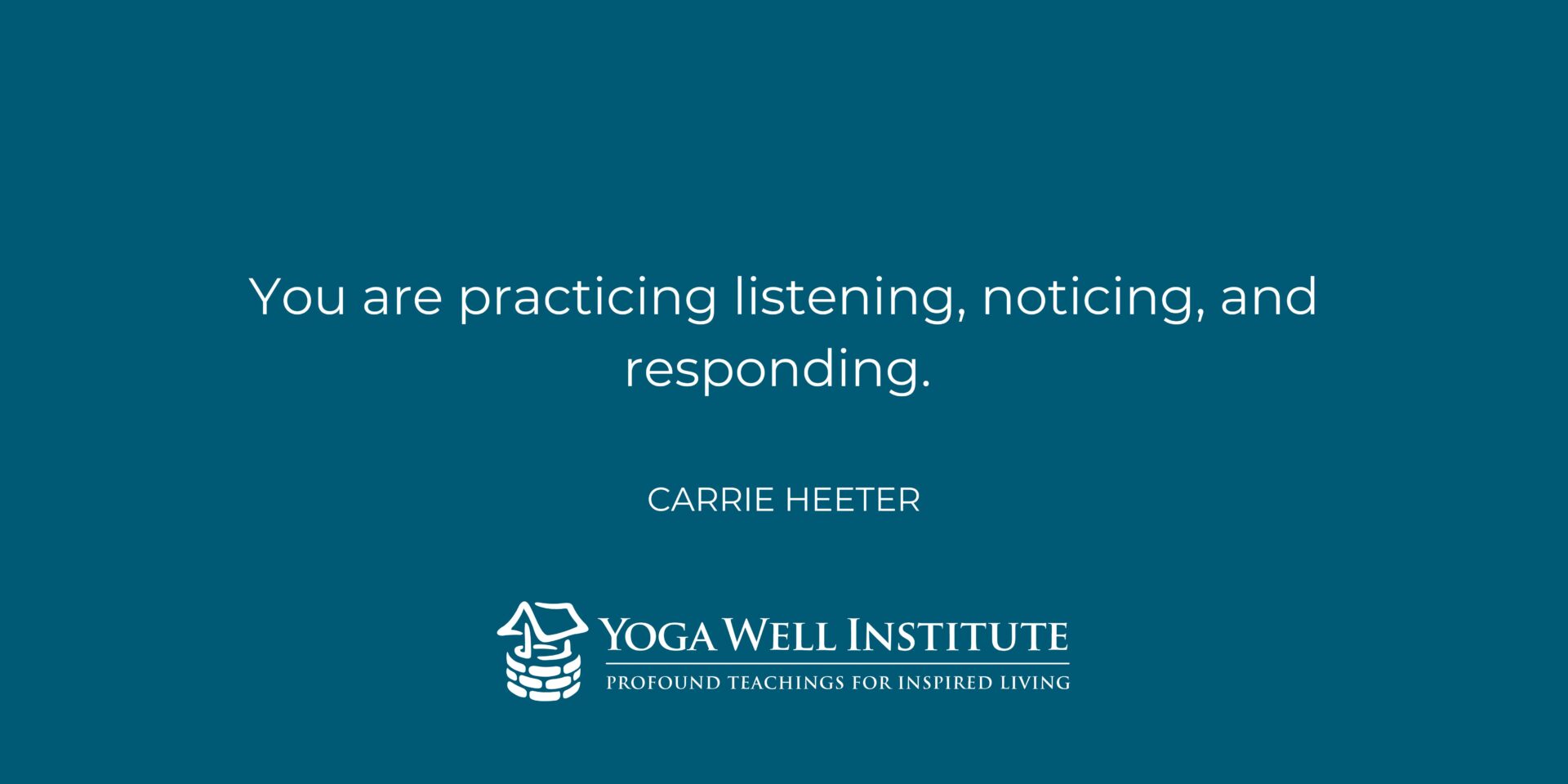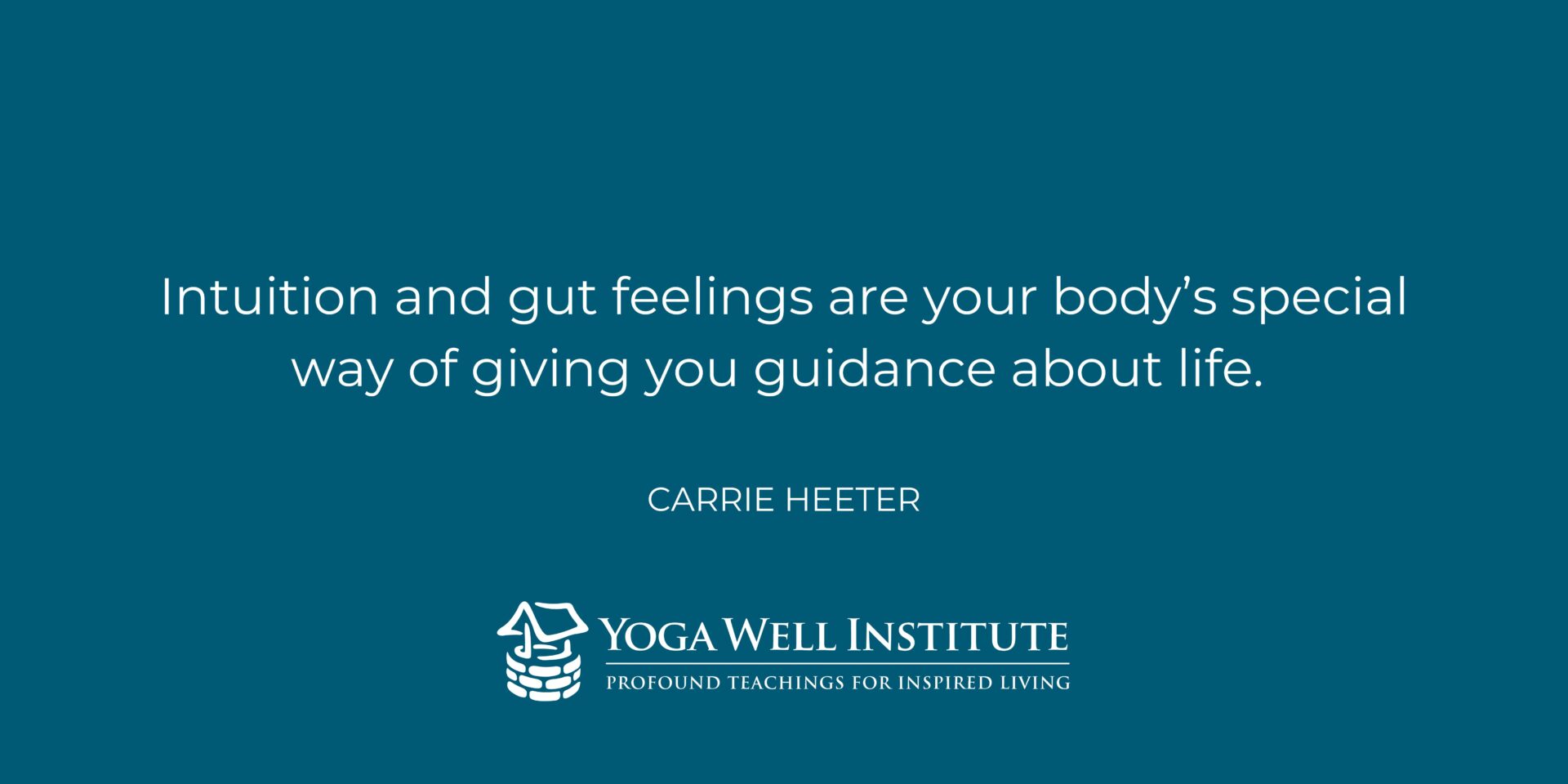Guest blog by Carrie Heeter, PhD, Professor Emeritus, Michigan State University |
Your body is always nudging you to do things—usually without you realizing it.
Paying attention to bodily sensations can tell you about yourself and your world. Your mind and body can learn to operate in partnership to optimize your life.
Leaving your body in charge of your actions is mostly fine since it keeps you alive. For example, when you need oxygen, your body inhales. When carbon dioxide levels get high, your body exhales.
When your body experiences discomfort, it adjusts how you are walking or moving. Your conscious mind may not need to notice.
Bodily feelings such as fear, desire, and uncertainty also influence your behavior and even your beliefs in helpful, interesting and insidious ways—here too with or without your awareness.
Sample your inner world of sensations and nudges
Try paying attention to a few of the cacophony of bodily signals happening throughout you every moment.
Set a timer for one minute.
Bring both arms out to the sides, about halfway up. Hold that position until the timer goes off.
Without looking, notice the sensations in your arms that let you know where your arms are in space – how high they are, how straight they are….
That’s proprioception.
As you continue to hold this position, you’ll probably feel some heaviness in your biceps. Eventually you may feel twinges of discomfort. These initially gentle signals motivate you to think about lowering your arms. As those signals get more insistent your conscious mind seriously contemplates lowering your arms now…
That’s interoception.
What does it mean to “listen to your body”?
Nerves throughout your body transmit signals to different parts of your brain about what’s going on in your body.
-
Proprioception senses your body’s position and movement in the world. Proprioception enables you to walk, type, dance, and feed the cat.
-
Interoception senses how your body is functioning and how you are feeling. Interoception motivates your actions (consciously or unconsciously) to breathe, eat, avoid danger, and follow your dreams.
When you “listen to your body,” you bring your awareness to some of the proprioceptive, interoceptive, and other messages coming from the tip of your toes to the top of your head. You can bring attention to your breathing, focus on a particular body part, or more generally check in with how you are doing.

Why listen to your body?
Here are a few reasons to listen to your body.
-
Listening to your body helps you take care of yourself.
-
When you notice you feel agitated you can pause and take a calming breath, then respond instead of reacting.
-
Bodily sensations reveal only part of what is happening. Your mind can contribute discernment in interpreting and acting (or not acting) on those sensations. Mind and body need each other—they form an awesome partnership.
Yoga helps you develop a partnership between your body and mind.
Practicing yoga relies on proprioception and interoception. Proprioception lets you position and move your body in space with precision. Interoception enables you to gently lengthen your breath without strain, to synchronize movement with breath, and to sense how far is right for you to move. Noticing how you feel before you start your yoga practice and again at the end deepens your mind-body partnership. You are practicing listening, noticing, and responding.

Your mind-body partnership can help you navigate everyday life and major life choices
Feelings are one of the ways your body nudges you to take action. Intuition and gut feelings are your body’s special way of giving you guidance about life.
For me, guidance shows up as a sense of deep rightness in the center of my upper mid-back. A delicious stillness and intense peace emanate throughout my body coming from that spot. Each of us is unique—that’s just what “knowing” feels like in me.
Guidance doesn’t show up on demand. You can learn to recognize how it feels when the feeling of knowing arises, and to listen for it. Yoga practitioners aspire to the life skill of “listening to your knowing.”
Looking for more?
If you are interested in experiencing Viniyoga and exploring new depths within your practice, join the Yoga Well Archives – On Demand.
Get full access to a well knowledge in Yoga Philosophy, Meditation and more.
The Yoga Well Archives — On Demand offer students of the Viniyoga Tradition, both new and old, an opportunity to explore a wide array of past Yoga Well Institute offerings. Topics demonstrating the enormous breadth and depth of Viniyoga include Meditation, Prāṇāyāma, Yoga Therapy, Āyurveda and much, much more. The Yoga Well Archives – On Demand are meant for all practitioners on the path of deeper study.

Carrie Heeter, PhD, RYS200
Carrie Heeter, PhD, RYS200, is a meditation designer, research scientist, and author of the book An Inside Look at Meditation: Experiences for healing, support, and transformation. She has studied yoga one-on-one with her mentor Marcel Allbritton and participated in Yoga Well courses and trainings for more than a decade. She is a retired professor of interactive media and serious games at Michigan State University



